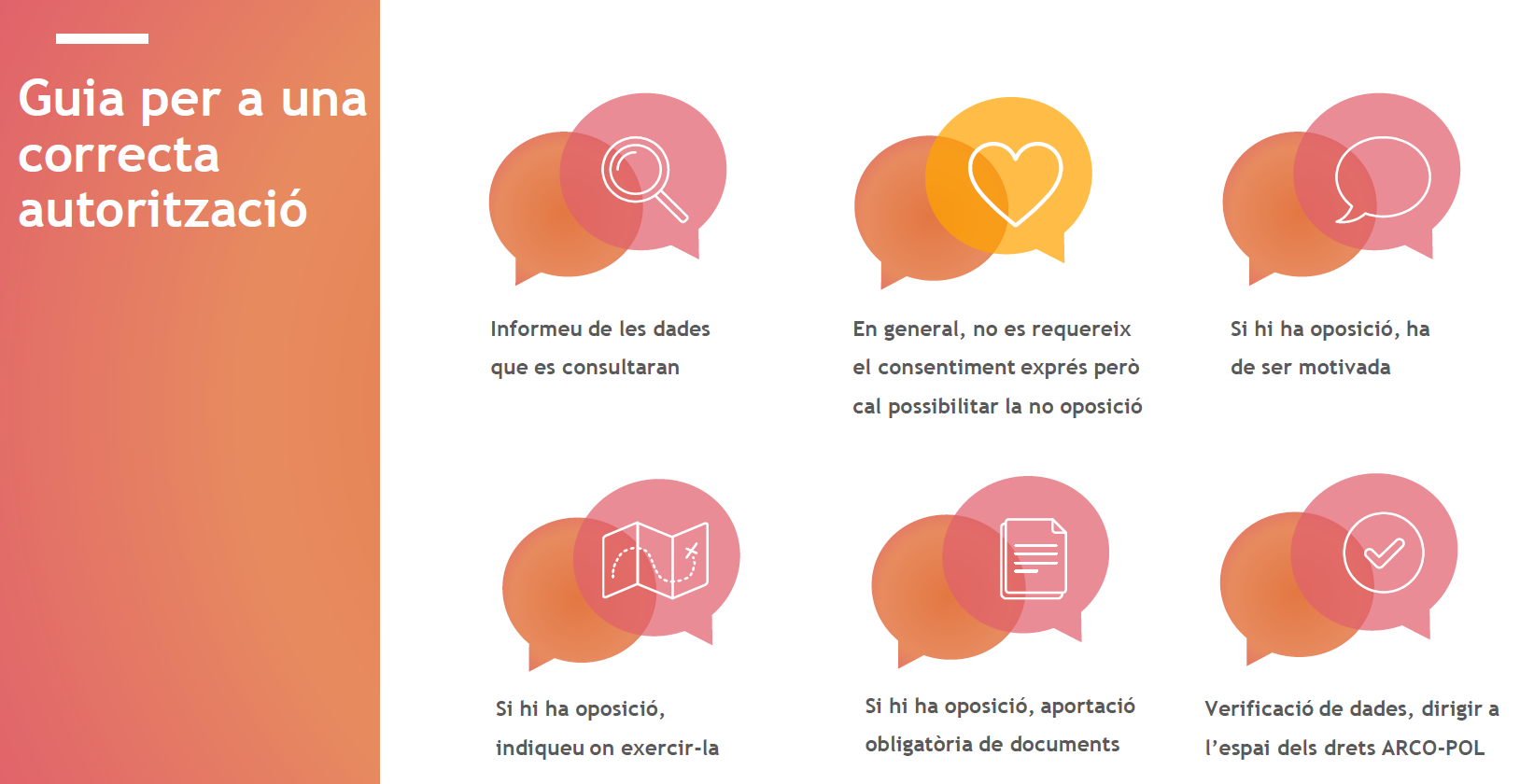The General Secretariat for Digital Administration has sent a series of considerations that must be taken into account to successfully process the request for authorization to the data verification and consultation services managed by the Data Intermediation Platform (PID).
These are indications that we have already been recalling in recent years in training and blog posts and that the PID has published on its page on PID Services and Information .
We summarize them for you so that they can serve as a guide when clarifying your regulations and forms.
1. The citizen must be informed of the data to be consulted (principle of transparency). This can be done in two ways: with a list on the application form with the data to be consulted or by referring to the section of the regulation that regulates the need for consultation. A specific form is recommended for that procedure; generic data consultation forms are not usually accepted.
2. In general, consultations will be covered by article 6.1c of Regulation (EU) 2016/679 and will not require express consent . This means that, in general, you should not use the formula “I authorize…” and reserve it basically for the case of requiring tax data.
3. As we said in the previous point, express consent is not generally required, but it is necessary to give the possibility to the citizen to oppose the data consultation .
Therefore, in the same form we can find two types of consent: express for tax data and non-opposition to the consultation of the rest of the data.
4. And if this opposition occurs, must be motivated .
The PID indicates that if the citizen is not required to provide the motivation for their opposition, it will not be a reason to stop the request, since there is no loss of rights. The fact of justifying the opposition is advisable with the aim of preventing the Administrations from finding indiscriminate oppositions to the consultation of data (what is called opposition “ad notum”, at will) and which have as their purpose the concealment or falsification of data.
5. It is necessary that the application form or the rules of the call clearly inform the citizen of where they can exercise their rights if they wish to object with good reason. You have an example in the Request for authorization by type of procedure in the services of Via Oberta.
6. In the event that the citizen expresses a reasoned opposition, he/she must provide the following documents: to which he has expressed his opposition. If he does not do so, the application cannot be approved.
Regarding this point, another recommendation is made: that in the design of administrative procedures and electronic forms, the possibility is contemplated that in the same electronic form the citizen can exercise this right of opposition and provide all the required supporting documentation at the same time of submitting the application. According to the PID, if this is done, delays and inefficiencies in the comprehensive management of the procedure are avoided.
If this possibility is not included or if the right to object is exercised outside the form (for example, at the Headquarters), it may imply delays in the administrative management if the citizen's right to object must be resolved first and, therefore, the smooth development of the procedure is conditioned.
7. In the event of data verification, that is, when the citizen provides the information and the system returns a yes/no, a specific form for that procedure will not be necessary to exercise the right of opposition. It will be sufficient to have the one that is already enabled to exercise this right on the data that the citizen provides (exercise of ARCO-POL rights).
